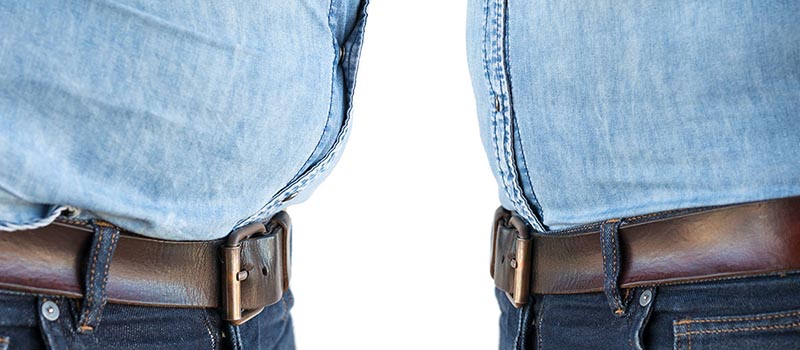After Bariatric Surgery
As you recover from bariatric surgery, you will need to make some basic but important lifestyle changes to succeed in your weight-loss journey. Starting to work on these even before you have bariatric surgery will help you prepare for your new way of life after your procedure.
Failure to do so can cause pain, nausea, vomiting, and irritate your new stomach pouch. Blockages can also occur especially with the gastric banding. Tips:
- Use infant utensils to slow you down, chew 25–30 times per bite, wait one minute in between bites, allow at least 20–30 minutes for a meal.
The less food you put in front of you, the less you will eat. Tips:
- Use a saucer plate for meals, buy small food containers for portion control.
- When starting the pureed portion of your diet you should limit food to 2–4 ounces per meal (¼ to ½ cup).
- When starting the soft foods portion of your diet progression, limit food to 4–6 ounces per meal (½ to ¾ cup).
It takes 20 minutes for your brain to identify that your stomach is full. When you feel pressure in your upper stomach area, this is your new full feeling. If it is painful, you probably took one too many bites. Do not overeat! This could cause nausea, vomiting, stretching of your new stomach pouch, or band slippage with the gastric banding. Tip: eat slowly to recognize this feeling.
Liquids can cause the food to pass through the stomach quickly and decrease the feeling of fullness. Drinking with meals can decrease the effectiveness of this surgery. Stop drinking fluids 15–30 minutes before your meal then wait 30–45 minutes after a meal to resume drinking.
Aim for 48–64 oz (6–8 cups) of fluid a day. For the first week post-op your stomach is swollen and it may take 30–60 minutes to drink a cup of liquid. Keep sipping all day, it gets easier as the weeks pass. Soon it will only take 5–15 minutes to finish a cup. Beverages must be sipped, no gulping! Tips:
- Increase your fluid intake if any of the following signs are present: dark urine, headache, dizziness, confusion, a white coating on the tongue.
- Try sippy cups or a sports top water bottle to slow you down, keep fluids with you all day long, avoid fluids on the table while you eat a meal.
- Do not drink from a straw. Straws make you swallow air, which can cause bloating and can stretch the stomach pouch.
The bubbles may cause pouch irritation and gas or bloating. Instead choose sugar-free, non-carbonated drinks.
Caffeine can irritate the lining of the stomach and may increase your risk for ulcers after surgery. It can also cause dehydration, or stimulate the bowels leading to cramps or diarrhea. Tips:
- Wean off carbonated and caffeinated beverages before surgery to help prevent withdrawals.
- Choose beverages with 10 calories or less per serving. Drinking high calorie beverages will slow down your weight loss.
Alcohol, beer, and wine can cause weight gain and result in poor nutrition since they are high in calories and low in nutrients. Alcohol may be absorbed more quickly than before due to your smaller stomach.

